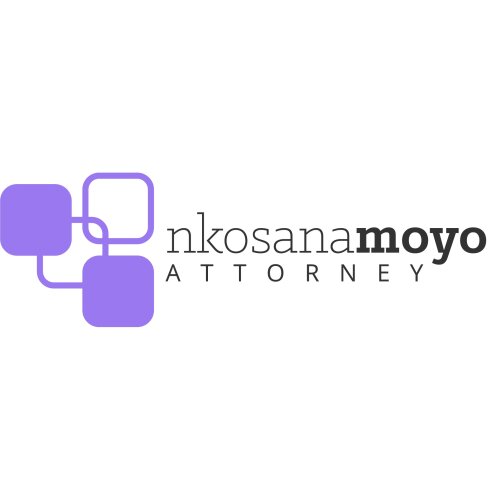Best Civil Litigation Lawyers in Johannesburg
Share your needs with us, get contacted by law firms.
Free. Takes 2 min.
List of the best lawyers in Johannesburg, South Africa
South Africa Civil Litigation Legal Questions answered by Lawyers
Browse our 1 legal question about Civil Litigation in South Africa and read the lawyer answers, or ask your own questions for free.
- I looked after my mom and she gave me a portion of her investment money
- As i was my moms primary caregiver, my siblings are now disputing the money she gave me and want to sue me for theft, my mom made me her power of attorney of her bank as i had to look after her. My siblings reside in Namibia and had no... Read more →
-
Lawyer answer by SJ Law Experts
As a property lawyer at SJ Law Experts, G-11 Markaz, Islamabad, when asked about a situation where you looked after your mother and she gave you a portion of her investment money, the appropriate legal response would depend on various...
Read full answer
About Civil Litigation Law in Johannesburg, South Africa
Civil litigation in Johannesburg, South Africa, involves a legal process where individuals or entities seek to resolve non-criminal disputes through the court system. This branch of law covers a wide range of disputes, such as property issues, contractual disagreements, and family matters, among others. Johannesburg, being the largest city in South Africa, serves as a hub for numerous legal proceedings owing to its significant commercial and social activity. The civil litigation process in Johannesburg focuses on settling disputes between parties who typically seek compensation or specific performance, rather than criminal sanctions.
Why You May Need a Lawyer
Engaging a lawyer in civil litigation is often beneficial due to the complexity and technical nature of legal proceedings. Common situations where legal assistance may be required include contract disputes, property disagreements, family law issues like divorce or custody, and claims for damages due to personal injury or defamation. A lawyer can help interpret the law, guide you through court procedures, represent your interests, and strive for a favorable outcome in your case. Having professional assistance can be crucial in navigating the intricate judicial system effectively.
Local Laws Overview
South Africa's legal system is rooted in Roman-Dutch law and further influenced by English common law. Civil litigation in Johannesburg must comply with both national legal standards and specific provincial regulations. Some key aspects include the Prescription Act, which limits the time period in which a case can be filed, and the Rules of Court, which dictate the procedures for civil cases. Additionally, the Constitution of South Africa, with its emphasis on human rights, plays a critical role in legal interpretations. Legal practitioners must also be cognizant of customary laws that may be applicable to certain cultural groups within the city.
Frequently Asked Questions
What is the typical process for a civil lawsuit in Johannesburg?
The typical process involves filing a complaint, serving notice to the defendant, the response from the defendant, the discovery phase, pre-trial motions, and potentially a trial and judgment. Lawyers guide clients through each step, ensuring proper adherence to legal procedures.
How long does a civil litigation case take to resolve?
The duration of a case can vary greatly, from months to several years, depending on the complexity of the case, the cooperation between parties, and court schedules. Some cases may be settled out of court, which can significantly reduce the time involved.
What costs are associated with civil litigation?
Costs can include lawyer fees, court filing fees, costs for expert witnesses, and other administrative expenses. Fee structures might be hourly, flat, or contingent, based on the agreement with the legal firm.
Can I represent myself in a civil litigation case?
While it's possible to represent yourself, known as "pro se" representation, it is generally advisable to have legal representation due to the complexities involved in legal procedures and the potential for unfavorable outcomes without expert guidance.
What types of cases fall under civil litigation?
Civil litigation covers a wide range of disputes, including but not limited to contractual disagreements, property disputes, matrimonial cases, defamation, and personal injury claims.
How is a decision enforced if a judgment is in my favor?
If a court orders a judgment in your favor, enforcement may involve measures like garnishing wages, placing a lien on property, or other court-sanctioned actions to ensure compliance from the losing party.
Are mediation or arbitration available as alternatives to court cases?
Yes, alternative dispute resolution methods like mediation and arbitration are encouraged to settle disputes amicably and can be less costly and time-consuming than a full court proceeding.
What factors should I consider when choosing a civil litigation lawyer?
Consider the lawyer's experience in civil litigation, familiarity with local laws, past case successes, costs, and their approach to handling your specific type of case.
What happens if I lose my civil case?
If you lose, you may have the option to appeal the decision, subject to certain grounds for appeal. It's essential to discuss potential outcomes and strategies with your lawyer before proceeding.
How can I find a qualified lawyer in Johannesburg?
Research online, request referrals from friends or colleagues, consult the Law Society of South Africa, and evaluate potential lawyers based on their expertise and client reviews.
Additional Resources
For additional help, consider contacting the Law Society of South Africa for professional lawyer listings. The Department of Justice and Constitutional Development can provide information on legal procedures. Local universities and legal aid clinics may offer pro bono services or consultations.
Next Steps
If you require legal assistance in civil litigation, begin by documenting all relevant information and communications related to your case. Then, seek consultations with qualified lawyers to discuss your options and understand potential costs. Comparing services and verifying the lawyer's expertise and track record can also help in making an informed choice.
Lawzana helps you find the best lawyers and law firms in Johannesburg through a curated and pre-screened list of qualified legal professionals. Our platform offers rankings and detailed profiles of attorneys and law firms, allowing you to compare based on practice areas, including Civil Litigation, experience, and client feedback.
Each profile includes a description of the firm's areas of practice, client reviews, team members and partners, year of establishment, spoken languages, office locations, contact information, social media presence, and any published articles or resources. Most firms on our platform speak English and are experienced in both local and international legal matters.
Get a quote from top-rated law firms in Johannesburg, South Africa — quickly, securely, and without unnecessary hassle.
Disclaimer:
The information provided on this page is for general informational purposes only and does not constitute legal advice. While we strive to ensure the accuracy and relevance of the content, legal information may change over time, and interpretations of the law can vary. You should always consult with a qualified legal professional for advice specific to your situation.
We disclaim all liability for actions taken or not taken based on the content of this page. If you believe any information is incorrect or outdated, please contact us, and we will review and update it where appropriate.












